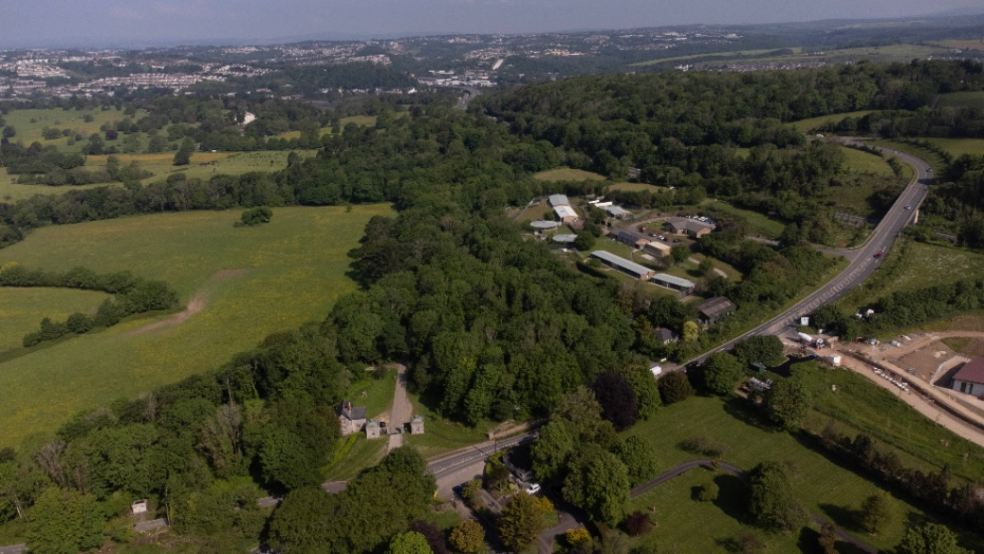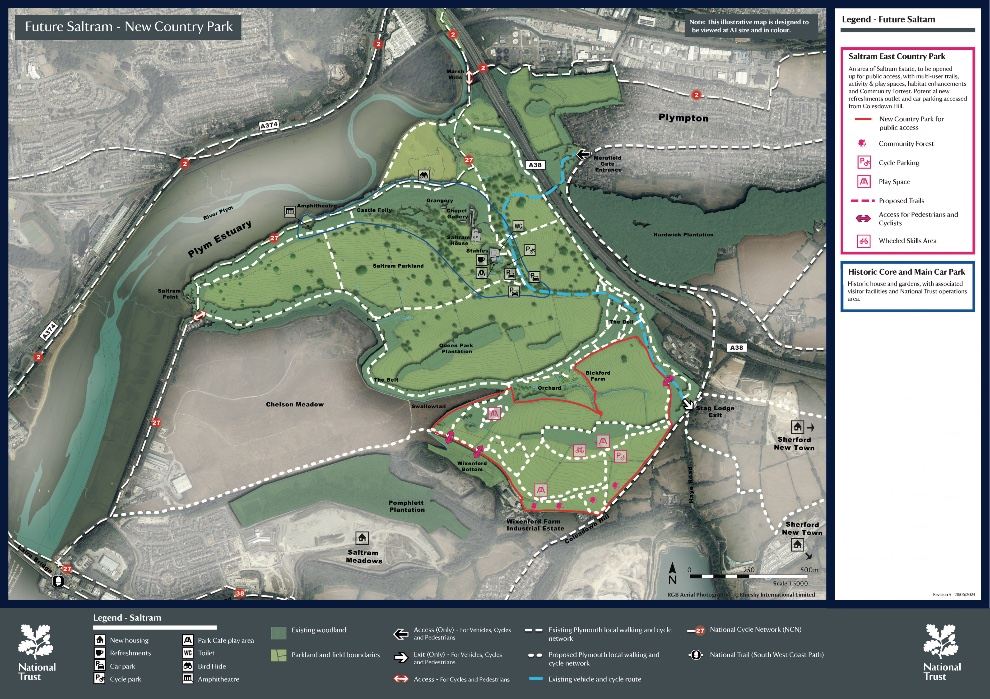
National Trust unveils plans to double the size of Plymouth country park for city residents to enjoy
The National Trust has announced plans to open up more of its estate to double the size of the free-to-access country park at Saltram in Plymouth. The new area of country park will enhance public access, restore historical landscapes, and improve the area’s natural habitats.
Spanning 32 hectares (79 acres) - equivalent to 45 football pitches - on the eastern side of the 213 hectare (528 acre) estate, this ambitious project aims to create a vibrant, accessible green space for community wellbeing and engagement as well as providing a boost for nature.
The National Trust has submitted a planning application to Plymouth City Council for the project, with the aim of opening the extended area of country park by spring 2025, if permission is granted.
The project is part of the National Trust’s work with the city and partners to boost wider access to blue and green spaces.
It’s also a key part of the charity’s commitment to creating more green lungs in cities to bring nature to people’s doorsteps and is part of its green corridor work, first announced in 2020 [2].
Hilary McGrady, Director-General of the National Trust said: The green spaces in our towns and cities are so important to us all – they’re places to unwind, to play, to improve our health, and to support wildlife. We want to bring nature closer to people’s doorsteps, and by opening up this area of land, we hope to do just that for more people in Plymouth.”
The charity will be investing around a million pounds into the project, with an additional £300,000 from external partners to create a new 2.5-kilometre multi-use trail to extend the existing riverside walk at Saltram, accommodating cyclists, walkers, wheelchair users, families with pushchairs, and those who prefer a flat and stable surface.
It will also connect to the national cycle route, providing access for 23,000 households near Saltram, in addition to the 5,500 households in the new town of Sherford, located just 1.5 miles from the estate's edge. The conservation charities ambition is to support more people to travel to Saltram by foot or bike.
Looking further ahead, the newly extended free-to-access country park will feature play areas, versatile outdoor spaces for informal play or events, and a wheeled activity skills area, suitable for a range of wheeled equipment, such as bicycles, scooters, balance bikes, hand cycles, assisted bikes and wheelchairs.

General Manager for the National Trust at Saltram, Jez McDermott said: "Our work at Saltram is key in realising the potential of Plymouth as a pioneer city for nature and delivering a green lung for everyone to enjoy.
“This area of the estate hasn’t previously been open to the public. The existing park already hosts around a million visits each year so this additional green space will allow us make nature even more accessible by foot and by bike for the 268,000 residents of Plymouth.
“Doubling the size of the country park represents an exciting opportunity for our visitors to embrace the outdoors, promoting physical and mental well-being while safeguarding precious habitats for future generations.”
The plans are the first stage in a 10-year program designed to enhance well-being by connecting people with heritage and nature in the city. This ambitious project will expand free-to-access country park areas, create new habitats for wildlife, improve visitor facilities, and restore historic landscapes and parkland views. Additionally, it aims to provide better access and stronger community links to Saltram for the surrounding local areas.
Jez continued: “In 1770, landscape artist William Tomkins painted a view from the east of Saltram House, capturing the estate's grandeur after a commission from the Parker family who were owners of Saltram at the time. This historical perspective, looking northwest towards the house and castle, has been lost to time until now.
“The creation of Saltram East Country Park will reintroduce this magnificent vista, allowing visitors to experience a perspective of the estate similar to what Tomkins immortalised centuries ago.”
Senior Project Manager for the National Trust at Saltram, Gina Small added: “We are looking to make both physical and intellectual access improvements at Saltram, as well as open new spaces for people to learn about the history of the site and its connection to the city. We are committed to working with the people of Plymouth and partners to shape this next chapter in Saltram’s history to ensure we continue to meet the growing needs of the communities we serve.
“Saltram is a well-loved place for many, but we want to make sure everyone feels welcome to visit and that Saltram can play a more pivotal role in supporting health, wellbeing and education in the years ahead.”
For more information visit: www.nationaltrust.org.uk/future-saltram











